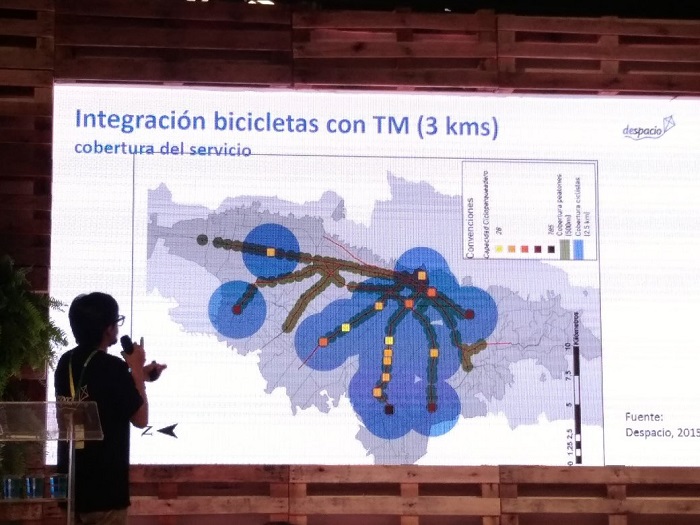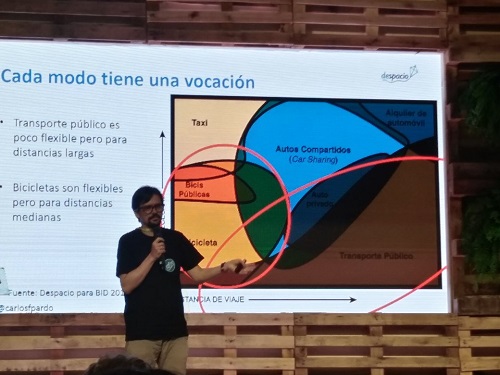
Velo-city day 3: Metropolitan areas Governance - Governance, inclusion and transportation as one system
This session primarily focussed on the integration of cycling with public transport in South America.
Bus Rapid Transport (BRT) systems could cover almost the entire city of Bogota if stations were well served by cycling. “Cyclists are prepared to cycle up to 3 km to public transport stops, compared to 500m for pedestrians. Cycling therefore increases the catchment area of public transport enormously”, said Carlo Pardos from Despacio.

Letícia Quintanilha, researcher at LABMOB (Sustainable Mobility Laboratory – UFRJ) reported about a case study looking at how Rio de Janeiro’s metro stations are linked up with cycling infrastructure, in terms of cycle lanes, bicycle parking and shared bicycle stations. Her main finding: metro stations in more affluent parts of the city are much better connected to cycling than in deprived neigborhoods. Popular Copacobana is particularly well served. Social equity – a topic which is much more prevalent in town planning in South America than in Europe.
A better integration of transport modes in Rio de Janeiro is needed if the city is to meet its climate objectives, stressed Cristina Mendonça, C40’s Engagement Manager. To honour the Paris Agreement, the city set itself the objective of reducing carbon emissions to 3t CO2 per capita by 2030 and Zero emissions by 2050, compared to 5t CO2 per capita today. The C40 approach is to demonstrate to its member cities through case studies the economic benefits of active mobility interventions, such as the building of bicycle infrastructure and its impact on a reduction of air pollution through a shift from car use to cycling. In Auckland, New Zealand, the Cost-Benefit Ratio was found to be 1: 2-4.
Network/Project Involved:
Contact the author
Recent news!
Upcoming events
Contact Us
Avenue des Arts, 7-8
Postal address: Rue de la Charité, 22
1210 Brussels, Belgium









